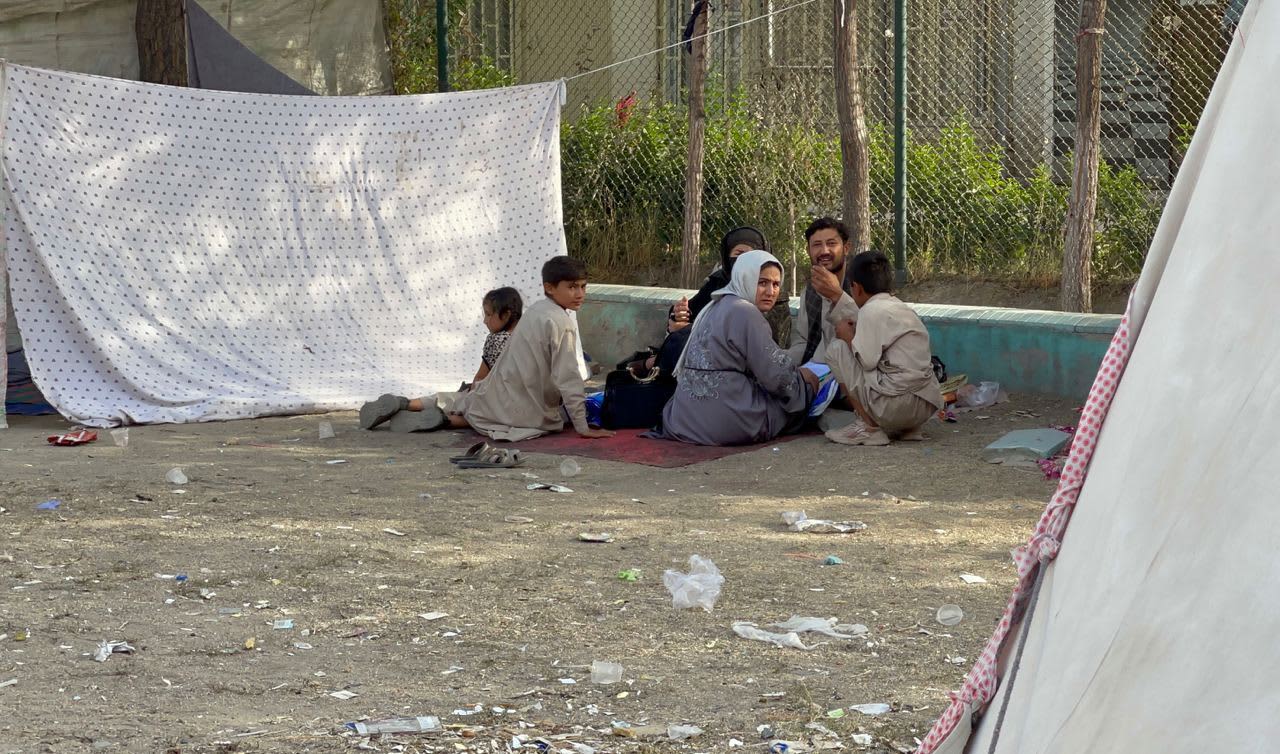
The situation on the ground today is really of a humanitarian catastrophe that is looming.
Isabelle Moussard Carlsen
UN High Commissioner for Refugees
Grandi, however, pointed out that the “overwhelming majority of Afghans, some 39 million,” still remain inside Afghanistan.
“They need us – governments, humanitarians, ordinary citizens – to stay with them and stay the course,” he said.
Kabul fell to the Taliban in mid-August as the U.S. prepared to withdraw its military presence from the country after 20 years. Since then, there have been reports of violence by the Islamist militant group including a suicide bombing attack that killed more than 180 people, and U.S. drone strikes against ISIS-K targets.
Isabelle Moussard Carlsen, head of the United Nations Office for the Coordination of Humanitarian Affairs in Afghanistan, told “Street Signs Asia” on Monday that half the country is in need of aid, and half the children are malnourished after “decades of conflict and drought.”
The population is “very vulnerable” and does not have access to food, water, education and health care, she said.
“The situation on the ground today is really of a humanitarian catastrophe that is looming,” she said.
Aid response
The World Health Organization announced Monday that 12.5 metric tonnes of medicines and medical supplies had landed in Afghanistan, for the first time since the country came under Taliban control.
The supplies included trauma kits and emergency health kits, and were “enough to cover the basic health needs of more than 200,000 people, as well as provide 3,500 surgical procedures and treat 6,500 trauma patients,” the UN health agency said in a statement.
However, the WHO also said the supplies can only “partially replenish” reserves and ensure that services can continue “for now.”
An “ever-worsening drought” in Afghanistan also threatens the livelihoods of more than 7 million people in the country who rely on agriculture and livestock, the United Nations Food and Agriculture Organization said in a statement this month.
Carlsen of the United Nations Office for the Coordination of Humanitarian Affairs described aid as “very scattered” on Monday before the WHO announcement.
The UN and its partners have a $1.3 billion response plan in Afghanistan — but it is only around 40% funded, and $800 million more is needed, the humanitarian agency said.
Aid workers are identifying priorities in Afghanistan and trying to provide essential services in the country, Carlsen said.
“It is very important that the international community understands that humanitarians will not abandon the people of Afghanistan,” she said.
“We’re staying and delivering. And to do so, we will need all the means, to be able to respond to the looming crisis.”
— CNBC’s Amanda Macias contributed to this report.




